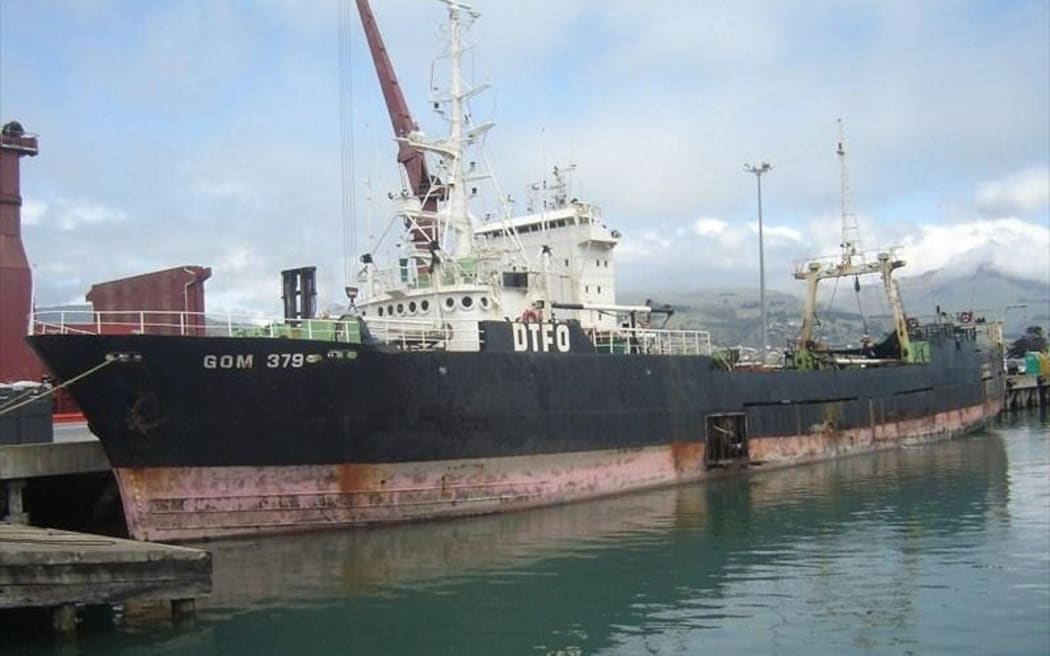Indonesia wants New Zealand to do more to crack down on what they say is the abuse of tens of thousands of its fishermen working on foreign boats.

An Indonesian deckhand died near Auckland Islands last year after he was trapped by a rope being used to retrieve a trawl net. Photo: MARINETRAFFIC
Up to 61,000 Indonesians have been treated as slaves on foreign fishing vessels operating in New Zealand waters, according to the Indonesian government.
The Jakarta Post newspaper reported Indonesia's Maritime Affairs and Fisheries Minister Susi Pudjiastuti as saying she had contacted the New Zealand ambassador to demand action.
She said new legislation requiring foreign-owned boats to be flagged here (registered in New Zealand) and comply with local labour laws would give migrant fishers some protection when it comes into effect in May 2016.
However, she implied Indonesia was looking for New Zealand to do more to crack down on abuse of its migrant workers on boats owned by Korean and Taiwanese companies.
The Maritime Union, which lobbied for the law change, agreed it had taken too long and people continued to be treated "abominably".
Spokesman Victor Billot said it was heartening to hear the Indonesian government take an interest in the plight of fishers on what he called slave boats, because it had been largely silent until now.
The Indonesians also needed to do their part and clamp down on rogue recruitment agencies which he said were selling workers into slavery.
"Unless there is some action on the other end of it, with Indonesia and all these [other] trading partners, we're still going to see those problems. We're still going to see people treated as sub-human."
On the part New Zealand should play, Mr Billot said the government needed to put more resources into inspections and enforcement when the vessels came into port. He would also like to see more jobs for New Zealanders.
"Really we should be looking at 'New Zealandising' the fishing industry and ensuring that New Zealand workers - not just New Zealand flagged vessels - have got a chance to work in that industry on New Zealand rates of pay and conditions."
Primary Industries Minister Nathan Guy said since the ministerial inquiry into foreign fishing vessels in 2012, the government had brought in a wide range of measures to strengthen monitoring and enforcement of New Zealand's fishing and labour standards.
"We now have observers on all foreign charter vessels, compulsory individual bank accounts for crew members, and independent audits to ensure crew are being paid what they are entitled to.
"A range of issues, including labour matters, are now taken into account when assessing applications to register foreign charter vessels. MPI has refused a number of applications for registration."
He said the law change requiring all foreign vessels to reflag to New Zealand by next May would "help ensure fair standards for all fishing crews working in our waters".


